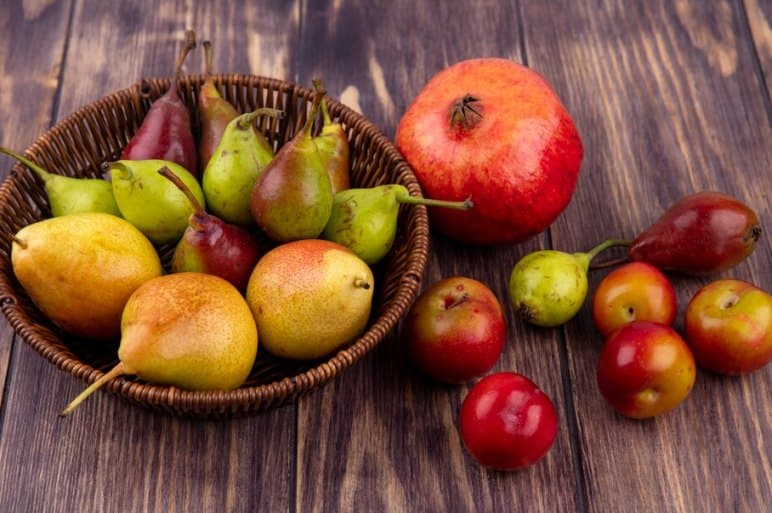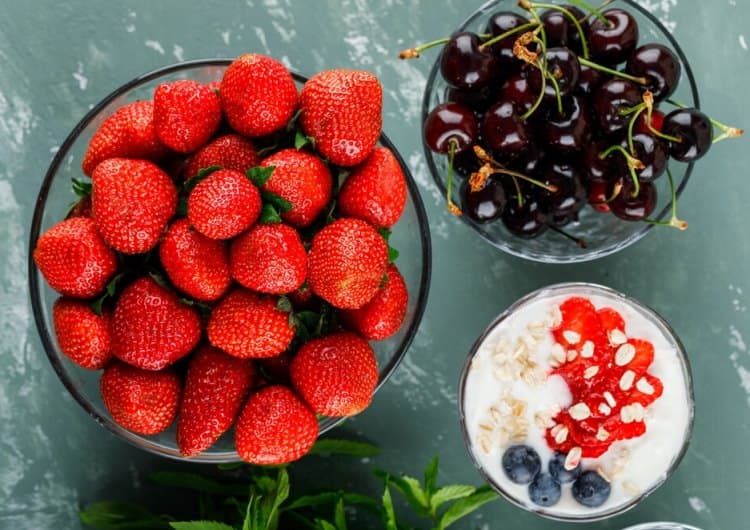What You Should Eat During And After Antibiotics
Antibiotics can disrupt the natural balance of bacteria in your gut. Consuming the right foods can help restore this balance and improve overall health. Probiotic-rich foods like yogurt, kefir, and fermented vegetables introduce beneficial bacteria. Fiber-rich foods such as fruits, vegetables, and whole grains support these probiotics and enhance digestion.
Hydration is also crucial; drink plenty of water to help your body process antibiotics and maintain gut health. By focusing on a balanced diet rich in probiotics and fiber, you can minimize side effects and promote a healthy gut microbiome.
Table of Contents
Foods To Eat During Antibiotic Treatment
When you are on antibiotics, your diet can significantly impact how effective the treatment is and how well your body recovers. Antibiotics work by killing bacteria, including both the harmful bacteria causing infection and the beneficial bacteria in your gut.
This can sometimes lead to digestive issues or reduce the balance of your gut microbiome. Choosing the right foods can help support your gut health, reduce side effects, and promote overall recovery. Below are key food categories to focus on:
Probiotic-Rich Foods
Probiotics are live bacteria that can help restore balance to your gut by replenishing beneficial bacteria that antibiotics may destroy. Yogurt is one of the best probiotic foods available, especially varieties containing live and active cultures. Other probiotic-rich foods include:
- Kefir: A fermented milk drink with high probiotic content.
- Sauerkraut: Fermented cabbage rich in beneficial bacteria.
- Kimchi: A spicy fermented vegetable dish from Korea.
Consuming these foods during your course of antibiotics helps maintain a balance of good bacteria, reducing the risk of antibiotic-associated diarrhea and other digestive issues.
Prebiotic-Rich Foods
Prebiotics are indigestible fibers that support the good bacteria in your digestive system. Probiotics can work better if you consume meals high in prebiotics while taking antibiotics. Examples of prebiotic-rich foods include:
- Garlic
- Onions
- Leeks
- Bananas
- Asparagus
These foods feed the healthy bacteria in your gut, promoting their growth and improving gut health during your antibiotic treatment.
Fiber-Rich Foods
Eating plenty of fiber is crucial during antibiotic use. Fiber slows digestion, allowing your body to better absorb nutrients and regulate bowel movements. Some excellent fiber-rich foods to include are:
- Whole grains: Oats, barley, and brown rice are excellent sources of fiber.
- Fruits: Apples, pears, and berries are great choices.
- Vegetables: Leafy greens like spinach and kale are packed with fiber.
However, keep in mind that you should avoid consuming excessive fiber during antibiotic treatment, as too much fiber may interfere with the medication’s absorption.
Hydrating Foods
Antibiotics can cause dehydration, especially if you’re experiencing side effects such as diarrhea or vomiting. To stay hydrated, eat foods that are high in water content, such as:
- Cucumbers
- Watermelon
- Oranges
- Celery
These foods can help prevent dehydration and keep your body functioning optimally while taking antibiotics.
Foods Rich in Vitamin K
Some antibiotics can interfere with vitamin K production in the body, which is important for blood clotting and bone health. Best options include:
- Leafy Greens: Spinach, kale, and broccoli are rich in vitamin K.
- Brussels Sprouts and Cabbage: These vegetables also offer a good source of vitamin K.
Foods To Avoid During Antibiotic Treatment
There are several meals and drinks that might worsen side effects or reduce the medication’s efficacy when taking antibiotics. It’s important to avoid these to ensure the treatment works as intended and to minimize discomfort. Below are the key foods and substances to avoid:
Alcohol
Alcohol can interfere with the absorption of antibiotics and may also worsen any side effects such as nausea or dizziness. Avoid consuming alcohol while on antibiotics to maximize the effectiveness of your treatment.
High-Sugar Foods
When you’re attempting to balance your microbiome, sugar can promote the growth of dangerous bacteria in your stomach. To give your stomach the best chance of healing, stay away from processed foods, sugary beverages, and desserts.
Foods High in Acid (for certain antibiotics)
Acidic foods like citrus fruits, tomatoes, and vinegar-based dressings can sometimes irritate the stomach lining, which may already be sensitive due to antibiotics. In particular, antibiotics such as doxycycline can cause stomach upset when combined with highly acidic foods.
Foods to Eat After Antibiotics
Once you’ve completed your course of antibiotics, your body will need some time to fully restore the balance of good bacteria. This is where post-antibiotic nutrition becomes crucial.
Continue Probiotic and Prebiotic-Rich Foods
To further replenish your gut bacteria after antibiotics, continue consuming probiotic-rich foods such as yogurt, kefir, kimchi, and sauerkraut.
Additionally, don’t forget to include prebiotic foods like garlic, onions, and asparagus to feed the newly introduced beneficial bacteria.
Fermented Foods
Fermented foods provide a rich source of probiotics and other beneficial compounds that help restore gut health. In addition to sauerkraut and kimchi, try adding foods like:
- Miso: A fermented soybean paste often used in Japanese soups.
- Tempeh: A fermented soybean product high in protein and probiotics.
- Pickles: Fermented cucumbers can also be a good source of probiotics, as long as they aren’t made with vinegar.
Fiber to Rebuild Gut Bacteria
Eating fiber-rich foods is especially important after antibiotics. Fiber helps good bacteria flourish by providing a food source for them to grow and multiply. High-fiber foods include:
- Legumes: Lentils, chickpeas, and black beans.
- Whole grains: Brown rice, quinoa, and barley.
- Fruits and vegetables: Apples, carrots, and broccoli are rich in fiber.
After receiving antibiotics, a healthy fiber diet will ensure that your gut microbiota heals as soon as feasible.
Antioxidant-Rich Foods
Antioxidants help protect your body’s cells from damage and can support the immune system during recovery. Foods rich in antioxidants include:
- Berries: Blueberries, raspberries, and strawberries.
- Leafy greens: Kale, spinach, and Swiss chard.
- Nuts: Almonds, walnuts, and pecans.
Including these in your post-antibiotic diet can promote overall health and speed up the recovery process.
Hydration Post-Antibiotics
Proper hydration is just as important after your antibiotic course as it was during it. Water helps flush out any remaining toxins and supports digestive health. Additionally, you can supplement your hydration with hydrating foods such as:
- Coconut water
- Citrus fruits
- Cucumbers
See More: Is Peace Tea a Healthy Beverage Choice?
Supplements to Consider After Antibiotics
Although food should be your primary source of nutrients, certain supplements can be beneficial after antibiotic treatment to ensure full recovery:
Probiotic Supplements
If you find it difficult to consume enough probiotic-rich foods, a probiotic supplement can be a convenient way to restore gut bacteria. Look for a supplement that contains a variety of strains, such as Lactobacillus and Bifidobacterium.
Vitamin D
Vitamin D is crucial for immune function, and many people are deficient in it. Taking a Vitamin D supplement after antibiotics may help support your body’s recovery.
Omega-3 Fatty Acids
Omega-3 fatty acids have anti-inflammatory properties that can help reduce any lingering inflammation in the gut after antibiotics. You can find omega-3s in fish oil supplements or plant-based sources like flaxseed oil.
Conclusion
Navigating the recovery process during and after antibiotic treatment involves a careful approach to diet and lifestyle. Make sure to include a range of foods high in probiotics and prebiotics in your diet to preserve the health of your gut.
Hydration plays a vital role in managing any potential side effects from antibiotics. Additionally, incorporating fiber-rich foods and maintaining a regular meal schedule supports digestion and overall gut health.
After completing your antibiotic course, continue to prioritize foods that promote gut health. Maintaining a diet rich in fermented foods and antioxidants supports ongoing recovery and immune function. Pay attention to your body’s response to different foods and make adjustments as needed, consulting with healthcare professionals when necessary.
Adopting these practices not only aids in immediate recovery but also contributes to long-term gut health. A balanced approach encompassing diet, hydration, stress management, and regular check-ups ensures that your gut microbiome remains resilient and healthy, promoting overall well-being.


